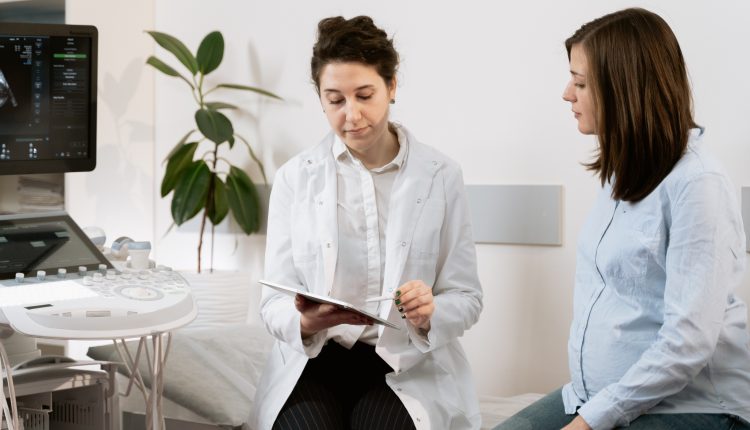Testing with No Test: How Will Your Doctor Diagnose PCOS?
As well as harming your sexual health, Polycystic Ovarian Syndrome (PCOS) can take its toll on your emotional wellbeing, as there’s no simple or easy test for it. With your doctor, you’ll thoroughly dissect your medical history, and put your wellness through physical examination and a couple of lab tests, before your GP can come to a diagnosis. The aim of PCOS testing is to determine whether your inventory of symptoms stem from PCOS or another disorder. But what are the symptoms of PCOS?
- Hirsutism (This means you have excess hair on your body and/or face. This will be particularly evident on your chin, upper lip, breasts, inner thighs and abdomen.)
- Irregular or infrequent periods.
- Obesity.
- Acne and/or oily skin (This will be particularly severe acne in teenagers or acne that persists into adulthood.)
- Infertility.
- Ovarian cysts.
- Balding or hair loss.
- Acanthosis nigricans (This is a symptom in which your skin darkens, usually on the neck. If it’s not due to PCOS, acanthosis nigricans is also a sign of insulin problems.)
- Skin tags. (This means you have small pieces of excess skin in your armpits or neck area.)
While PCOS means you could have any of these symptoms in varying combinations, there are two essential features of the disorder:
1. Hyperandrogenism: This condition, or symptoms indicating hyperandrogenism, means that you have excess levels of androgens in your blood. Androgens are hormones such as testosterone that that can cause you to develop acne and excess facial/body hair if found in excess quantities. If your case of hyperandrogenism is severe, you may experience “virilisation” which may mean that you bald more at the temples, your voice deepens, your muscles grow or your clitoris gets bigger. This latter symptom is known as clitoromegaly.
2. Period problems: For a PCOS diagnosis, there also has to be problems with your periods. This may mean you don’t ovulate, or your ovulation is irregular. At the same time, your menstruation is likewise absent or irregular. If you suffer from PCOS, you may have oligomenorrhea, which means you only have eight or fewer periods in a given year. Women with PCOS have also been known to experience amenorrhea, or the absence of periods for extended periods. Then you have some women with PCOS who have polymenorrhea, or periods that are too frequent.
The problem with PCOS is that it’s a hormonal disorder, and these are notoriously complex. Often, the symptoms suggest more than one potential cause, which is why the diagnostic process likely will include a thorough physical and history to check for hypothyroidism, Cushing’s syndrome and tumours. As we’ve already covered, there is no test for PCOS, but that doesn’t mean that there are no tests that your doctor can do. A healthcare professional may want to measure your blood levels of a range of hormones.
Your doctor may check for your blood levels of the thyroid hormone, as the symptoms of low thyroid function are often similar to those of PCOS. Prolactin is also often tested for when diagnosing PCOS. This hormone is responsible for stimulating your body’s production of milk, but high levels can lead to irregular or absent menses similar to those of PCOS. Your doctor may look for your levels of androgens, including dehydroepiandrosterone sulfate and testosterone. These hormones are often referred to as “male hormones,” and are frequently associated with PCOS. Excess levels of androgens cause “male-like” symptoms such as excess body or facial hair. Finally, you might have tests to find your body’s levels of follicle-stimulating hormone (FSH) and luteinizing hormone (LH), as a high ratio of LH to FSH — typically three-to-one — is characteristic of PCOS.


Comments are closed.